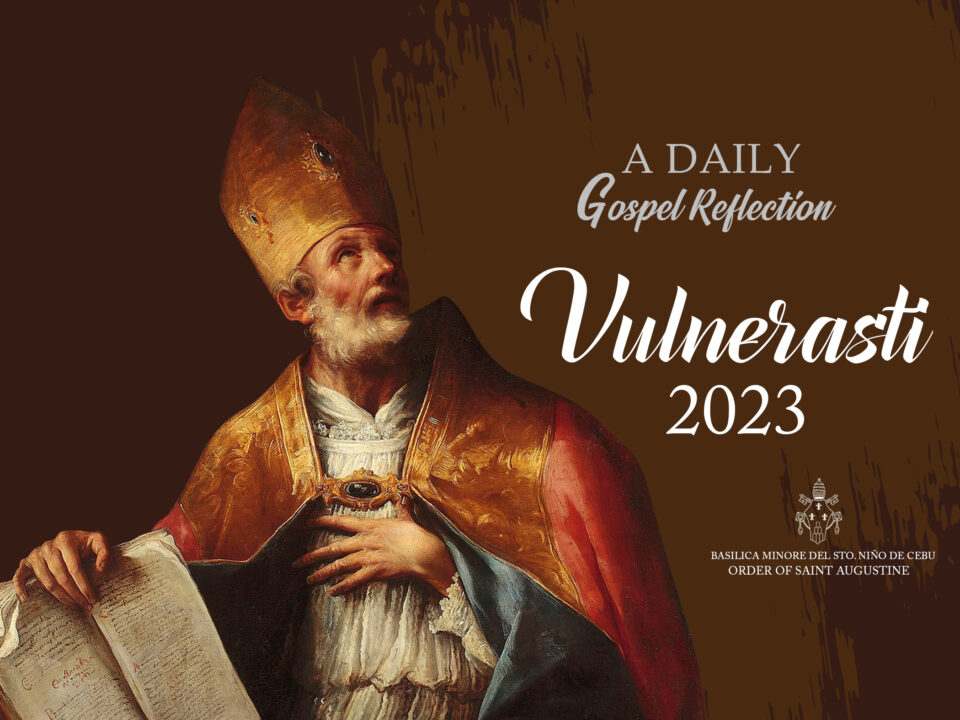Thirty-third Sunday in Ordinary Time

Today’s Reflection
Gospel: Lk 21:5-19
November 13, 2022 | Sunday
While some people were talking about the temple, remarking that it was adorned with fine stonework and rich gifts, Jesus said to them, “The days will come when there shall not be left one stone upon another of all that you now admire; all will be torn down.” And they asked him, “Master, when will this be, and what will be the sign that this is about to take place?”
Jesus said, “Take care not to be deceived, for many will come in my name, saying, ‘I am he; the time is near at hand!’ Do not follow them. When you hear of wars and troubled times, don’t be frightened; for all these things must happen first, even though the end is not so soon.”
And Jesus said, “Nations will fight each other and kingdom will oppose kingdom. There will be great earthquakes, famines and plagues; in many places strange and terrifying signs from heaven will be seen. Before all these things happen, people will lay their hands on you and persecute you; you will be delivered to the synagogues and put in prison, and for my sake you will be brought before kings and governors. This will be your opportunity to bear witness.
So keep this in mind: do not worry in advance about what to say, for I will give you words and wisdom that none of your opponents will be able to withstand or contradict.
You will be betrayed even by parents and brothers, by relatives and friends, and some of you will be put to death. But even though, because of my name, you will be hated by everyone, not a hair of your head will perish. By your patient endurance you will save your souls.
Today’s Reflection:
In the Gospel, Jesus speaks of an apocalyptic scenario that shall herald his return. The Jerusalem temple shall be destroyed. There shall be persecutions, famines, plagues, earthquakes, and wars.
These scenes somehow reflect the life situation of persecuted Christians in the first century Roman Empire, particularly during the writing of Luke’s Gospel (c. 80-85 CE). By then the temple had already been destroyed at least ten years before (c. 70 CE). Most of the followers of Jesus were then mercilessly persecuted on account of their resolute witnessing to the Gospel (e.g. Revelation). But others tolerated the repression of the Romans and even submissively cooperated with them (e.g. Rom 13). The First Letter of Peter even encourages slaves to endure the harsh treatments and beatings of their masters on account of the belief that God will reward them (cf. 1 Peter 2:18-20).
As in many other apocalyptic texts in the Scriptures, the Gospel Reading has two-pronged purpose, which is best captured by a famous slogan of editorial writers: “To comfort the afflicted and to afflict the comfortable.”
The first purpose, namely—to encourage the persecuted Christians—is quite explicit in the passage. The Lord exhorted them not to be afraid in the face of persecutions. They must instead endure all difficulties because the Lord would come to their rescue. However, the second purpose, namely—to rouse up those who submitted to the oppressive rule of Rome—is implicit in the passage. That what has been believed to be an indestructible temple gets badly ruined, with no stone left upon another, intimates that no man-made structure lasts. That nations rise against nations or kingdoms against kingdoms suggests that no empire, including the seemingly unconquerable Roman Empire, lasts for they will end up destroying each other. What lasts is the word of the risen Lord, particularly his assurance that by their endurance they would be saved.
Today, a lot of our fellowmen find themselves in war-torn and persecuted parts of the world. The Lord’s assurance in the Gospel particularly strikes a chord with those whose homes and families got struck by rockets in Gaza or in Syria.
We who are living in relatively peaceful and affluent societies may have become indifferent to the sufferings of our fellowmen in many parts of the world. If this were the case, may the word of the Lord afflict or disturb us that we may do our share in helping those who suffer. We may not have the capacity to put an end to regimes that have caused unrests and sufferings in war-torn nations. Nonetheless, we can help to bring about peace and to bring an end to the culture of death in our little ways. Fostering positivity in our homes and workplaces can already be of help. (Fr. Lazaro N. Ervite, OSA) /Vulnerasti, 2022



